
Berry season is here! And if blueberries are your jam (See what I did there?), you probably enjoy tossing them on your morning yogurt, into a smoothie or directly in your mouth.
Whether you’re picking from your own blueberry bushes, hitting up the local u-pick farm, or enjoying this seasonal fruit from your local market, there are a few things you should know about storing them fresh. It only takes a few minutes to ensure your blueberries stay plump, juicy and sweet for days.
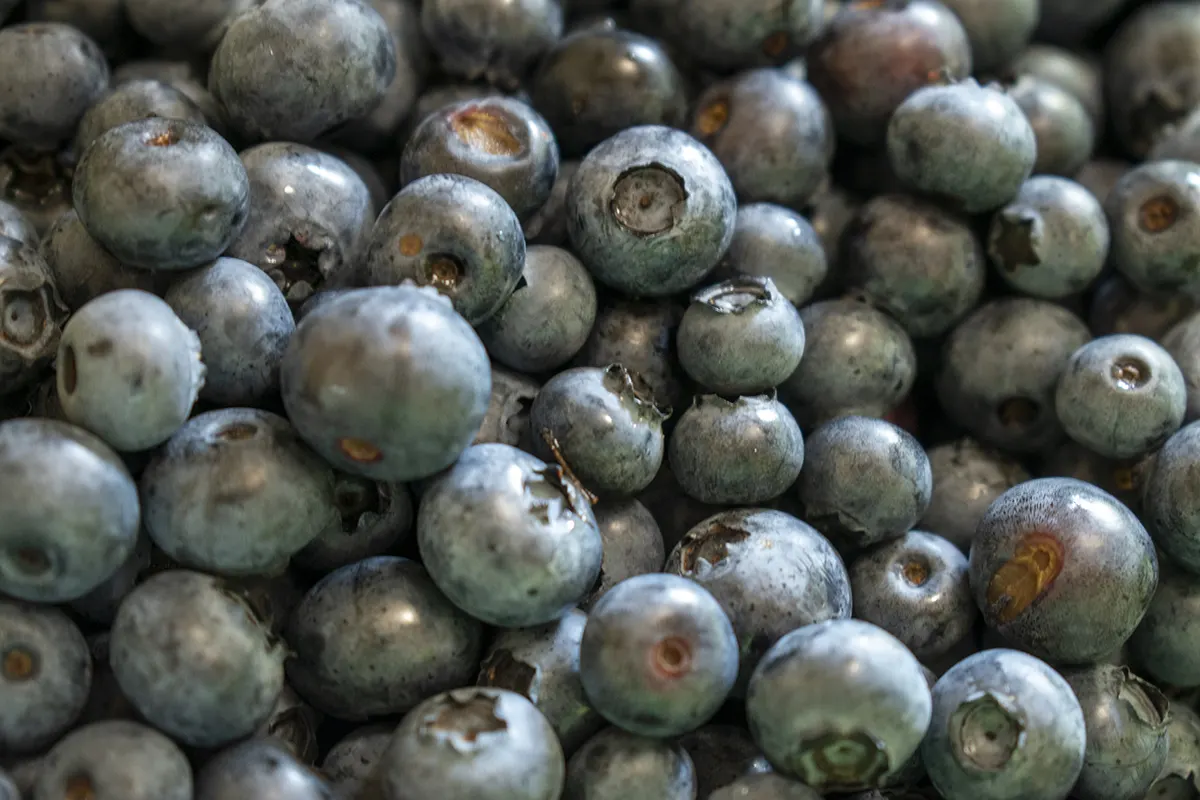
It’s always disappointing when you’ve got blueberries on your mind, and you go to grab some only to find moldy purple blobs or wrinkly blueberry stones.
It’s a whole other level of disappointment when you’ve grown them yourself or spent the time to go somewhere and pick them. Storing fresh blueberries correctly is essential if you want to avoid this kind of crushing disappointment first thing in the morning when making your breakfast smoothie.

Luckily, it only takes a few minutes of prep work to make fresh blueberries last. Follow these steps as soon as you get your blueberries home, and you’ll enjoy them for weeks rather than days.
Inspect and Remove Damaged Blueberries
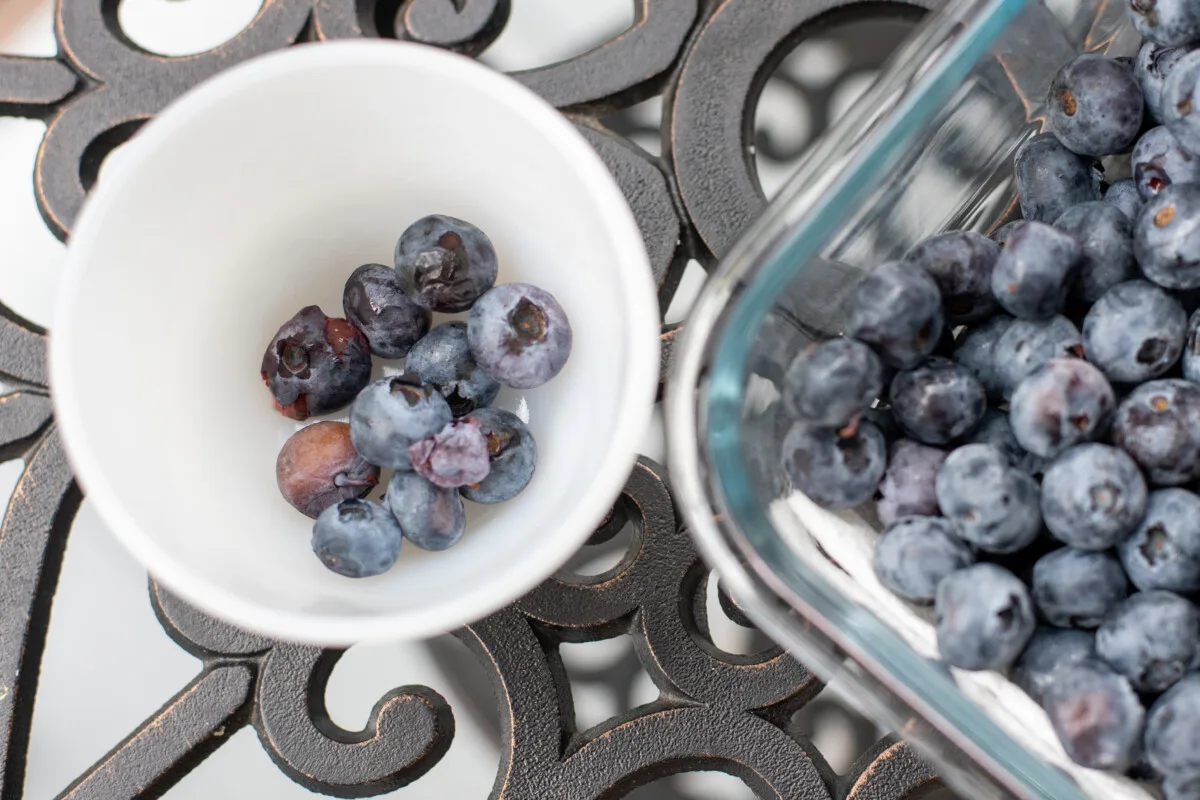
Before you do anything else, pick over your blueberries and remove any that are damaged, moldy, or overripe. You don’t want to eat those anyway. These little buggers will cause the other berries around them to spoil faster.
Don’t Wash the Berries Until You’re Ready to Use Them
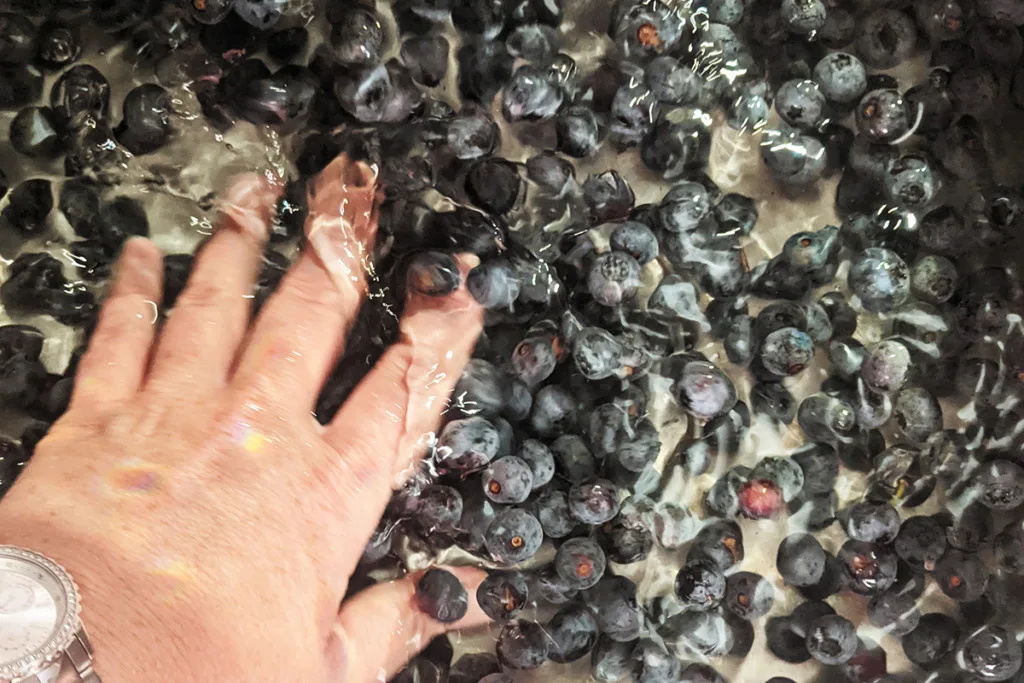
One of the worst things you can do with fresh berries is wash them and put them in the fridge. It’s always best to wash blueberries just before you eat or cook with them. Excess moisture can lead to mold growth and a shorter shelf life. And depending on where you store them in your fridge, the leftover water can freeze, causing mushy berries.
Refrigerate Immediately

Place the unwashed blueberries in a clean, dry container. Choose a large, shallow dish as opposed to something deep. Berries are delicate and bruise easily. Once you begin heaping them on top of themselves, you will inevitably crush the berries at the bottom. Seal the container with a lid or airtight wrap and tuck them in the fridge as soon as possible.
U-pick Tip
If you plan on picking blueberries at a farm, pack a cooler with ice packs to put your berries in for the ride home. Cooling the sun-warmed blueberries off and keeping them cool until you get home will ensure they last longer.
Ideal Temperature and Humidity
Blueberries need appropriate temperature and humidity if they’re going to last more than a few days. As I’ve just noted, the refrigerator is the best place to store them. However, where you put them in the fridge is just as important. If you have a spot in your fridge that gets especially cold, don’t store your blueberries there. Your crisper drawer is the best location for blueberries.
Let Your Blueberries Breathe
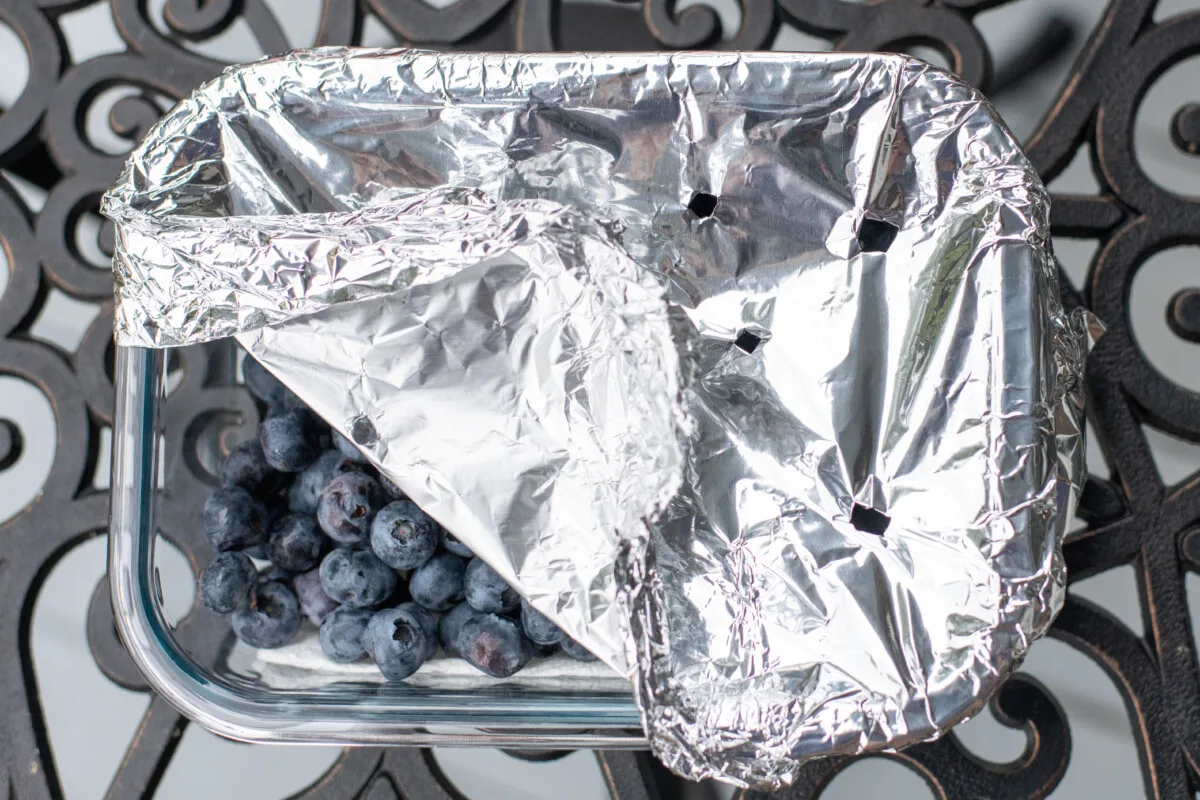
Blueberries should be stored in a container that allows ventilation. You don’t want moisture or condensation to build up, which can cause moldy berries. Storebought blueberries already come in packaging with vents. If you use plastic wrap to cover your container, poke several small holes in it. Even better, use foil, as it’s easy to recycle or reuse and much easier to poke holes in.
Keep Them Out of the Sun
We often forget about light as a factor in spoilage. While those blueberries might look great in your fancy ceramic berry bowl under the golden sunlight splashed across your counter, they’ll spoil much faster. Again, the best place for blueberries is in your nice dark, cold fridge.
Eat Them
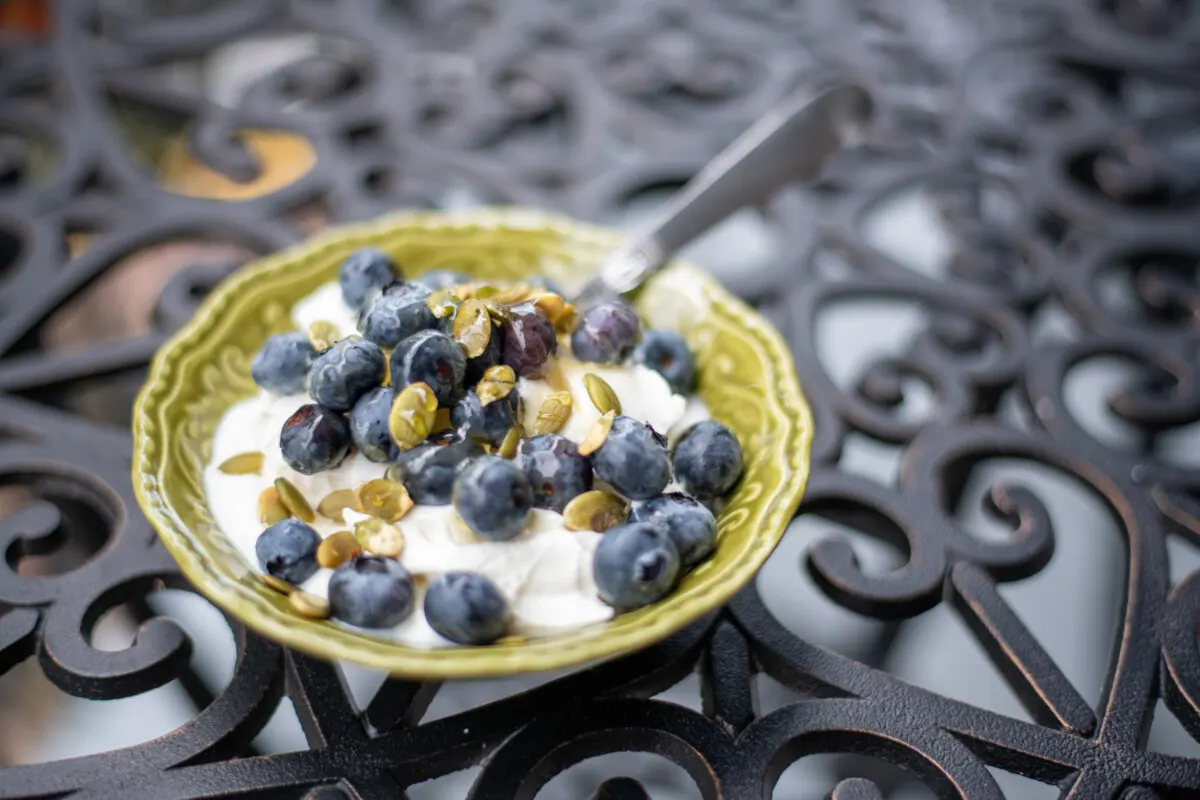
I know, this whole article is supposed to be about extending how long you have to eat them. But like all produce, blueberries taste best when eaten right away. You’ve got about a week before the flavor and texture begin to decline. I’m not saying they’ll go off a cliff once you hit that 7-day mark, just that you’ve got a short window before “Oh my gosh, amazing blueberries!” becomes, “These are pretty good blueberries.”
If you need some ideas on what to makewe’ve got quite a few.
Freeze Them
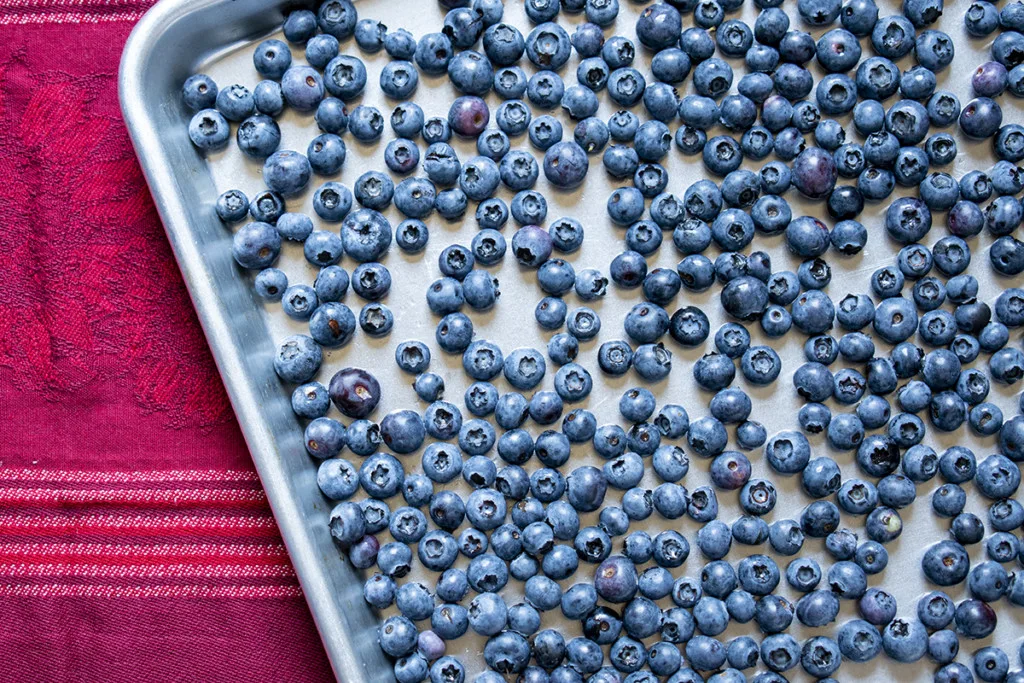
If you’ve got plans to make jam or preserve the berries in another manner but can’t get to them right away, you can always freeze them. While freezing the blueberries will inevitably lead to soft, squishy blueberries once they thaw, it’s better than losing them to spoilage.
If you’re curious about why frozen blueberries always end up soft, you canread about it here, where I show you how to freeze blueberries so they don’t stick together.
Don’t Store More Than You Need
我在这一个可怕的。我总是高估how many blueberries I will eat fresh. To help minimize food waste, only store as many fresh berries as you think you’ll eat in a week. You can easily freeze the rest and not feel guilty about pitching wrinkly blueberries in your compost later.
Remember, fresh blueberries are one of those “highly perishable” perishables, so they need a little TLC when handling and storing them. But the reward for your extra care is berries that are just as tasty as the day you picked them a week or even two later.
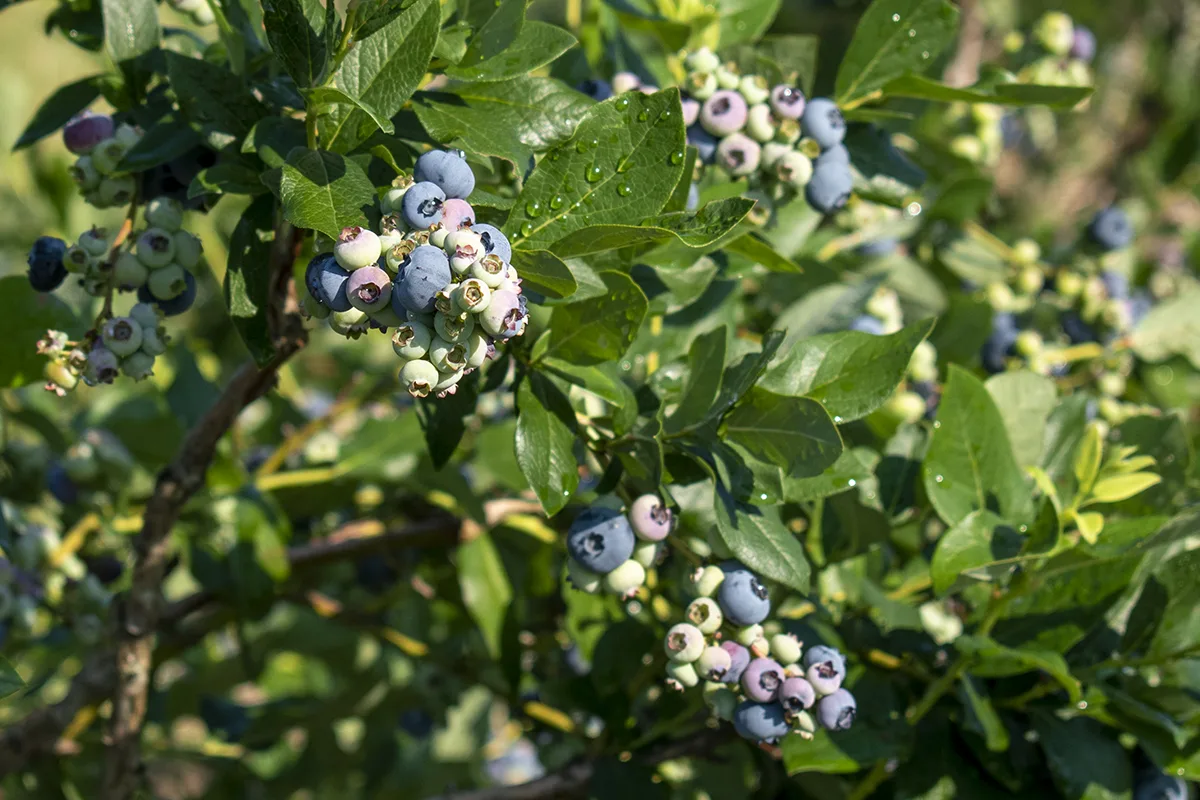
Finally, the best way to store fresh blueberries for eating is right on the bush. If you’ve got the space, consider growing these delicious berries yourself. We’ve got all thesecrets to a great blueberry harvest, fromproper pruningtowhen to fertilizethem.
